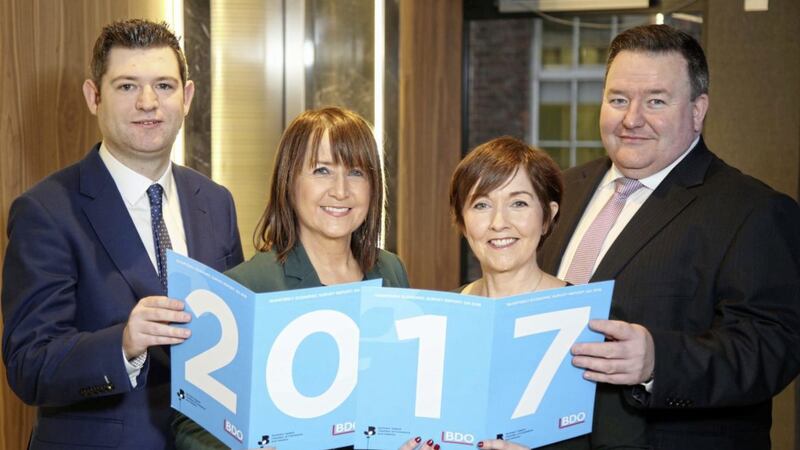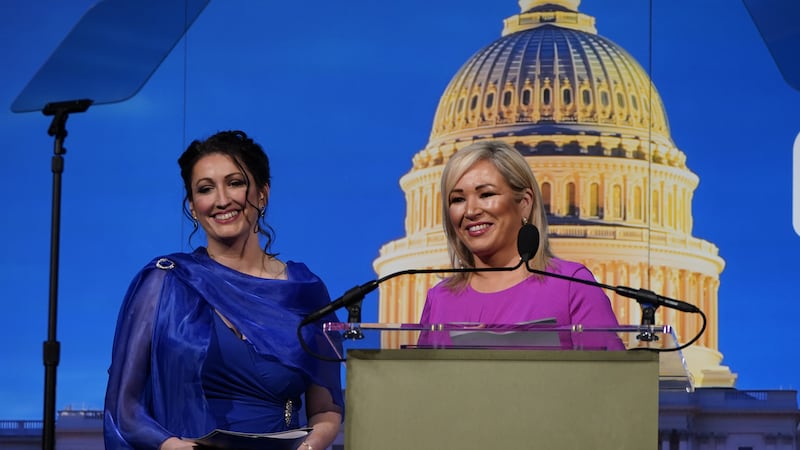BUSINESS brio remained untarnished by Brexit, despite a wobbly initial reaction to the EU result, a new economic survey has found.
The quarterly economic survey unveiled by the Northern Ireland Chamber of Commerce and Industry and business advisers BDO concluded that businesses in the north experienced a "more positive end" to 2016, with key balances strengthened for both manufacturing and services.
Businesses were also positive about their prospects for 2017 – 62 per cent expected business to grow, with only 20 per cent predicting a squeeze.
In the service sector, the domestic sales balance increased from plus-25 per cent in quarter three to plus-33 per cent in quarter four, placing Northern Ireland at the top of the regional rankings.
Meanwhile, in manufacturing, sales held up in both domestic and export markets during the last quarter, but order books appear to have weakened and the balance of those manufacturers feeling under pressure to raise prices more than doubled to plus-49 per cent.
This has largely been driven by rising costs of raw materials which independent economist Maureen O'Reilly said had largely been absorbed by businesses thus far.
"Inflation is a key issue facing businesses," she warned, "and prices may have to rise; there are undoubtedly challenges ahead."
In addition to inflation, exchange rates were highlighted as a key concern for 62 per cent of business leaders (compared to 53 per cent in the previous quarter), as were staff recruitment and a perceived lack of government support.
Richard Ramsay, chief economist with Ulster Bank in Northern Ireland, suggested the north's political antics were having a negative effect on those watching from the sidelines in the US.
He said the north's current political instability was being "played out across the world" and had put Brexit "lower down the list of concerns" for US company directors considering opportunities for foreign direct investment.
He also voiced concerns that due to budgetary pressures created by the renewable heat incentive scandal, the long-awaited lowering of the north's corporation tax would not be feasible, particularly due to the Treasury's pre-requisite for a clear demonstration of "competency and sustainability".
But closer to home, Brexit angst still hangs in the air, according to the Chamber's 'Brexit Watch' which cited a dip in turnover for one in five businesses.
The Brexit Watch, which forms part of the overall survey, found one in four businesses have scaled back local investment plans because of the EU result (down from one in three in Q3), although 13 per cent still plan to boost growth in the years ahead.
Ann McGregor, chief executive of NI Chamber, said: "In terms of Brexit at this stage, our members expect the British Government and the Bank of England to deliver stability of markets, further clarity on the timetable for transition and guarantees for existing EU workers in the UK."
Brian Murphy, partner at BDO, said the survey showed "some very positive results", including increased recruitment intentions, increased sales and improving confidence.
"Perhaps Brexit hit us harder here, but, if there's one thing that typifies Northern Ireland business it is our resilience," he said.
"Whatever the uncertainty, we tend to bounce back and just get on with it."






